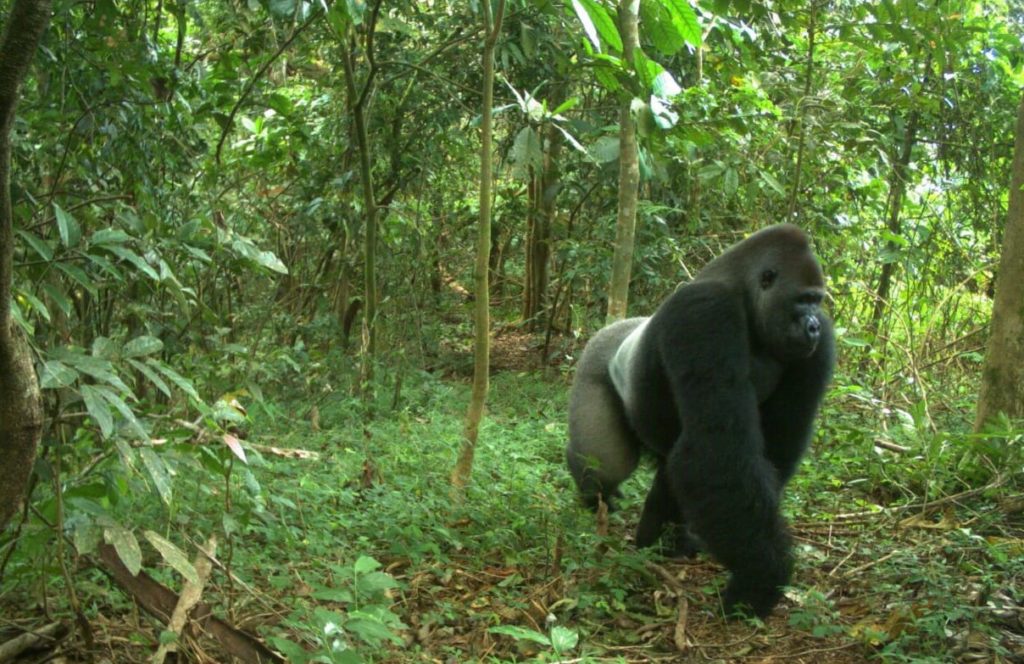Wild Africa Fund joined the rest of the world on Friday, March 3, 2023, to mark World Wildlife Day, an annual event dedicated to raising awareness of the importance of wildlife, and urges the government and conservation organisations to partner to combat forest and wildlife crime to protect Nigeria’s biodiversity.

Nigeria is home to some of the world’s most iconic wildlife such as elephants, lions and gorillas. But illegal activities such as poaching, deforestation, and illegal wildlife trade have put these animals in danger, thereby threatening their existence. Nigeria has also become the transit hub for the illegal trade in ivory and pangolin scales.
This year’s theme, “Partnerships for Wildlife,” emphasises the crucial role partnership plays in protecting and preserving wildlife for biodiversity conservation. Protecting these species and their habitats is essential not only for their survival but for the health and well-being of the ecosystem and the livelihoods of the host communities that depend on them.
Wild Africa Fund says it is committed to protecting Nigeria’s wildlife but recognises that this cannot be achieved independently as everyone has a part to play.
“By partnering with the government, international and local NGOs, media, and local communities, we can achieve greater impact and ensure a brighter future for wildlife in Africa and beyond,” says Peter Knights, founder of Wild Africa Fund. “Collaboration is the best hope that we have of ensuring that Nigeria’s natural resources are protected for future generations.”
Wild Africa Fund is collaborating with organisations such as the Environmental Investigation Agency (EIA) and Africa Nature Investors Foundation (ANI) with support from the UK Illegal Wildlife Trade Challenge Fund and the US Bureau of International Narcotics and Law Enforcement Affairs (INL) to support the Nigerian government to update its wildlife laws and combat illegal wildlife trade.
There has been progress with this as the Endangered Species Conservation and Protection Bill passed its first reading in the Federal House of Representatives in February 2023, demonstrating the organisations and government’s commitment to wildlife conservation.
EIA said it’s proud of its long-standing partnerships with government agencies, civil society organisations, and public institutions such as the financial and banking sectors, all of whom have a vital role to play in tackling wildlife trafficking.
“Nigeria is taking decisive steps to improve its law enforcement and criminal justice response to wildlife crime which, if sustained, will have a lasting impact across the continent, ensuring a future for all species affected by wildlife and forest crime,” says EIA’s Senior Project Coordinator, Securing Criminal Justice, Justin Gosling.
ANI is working to protect Nigeria’s national parks and forest reserves but protection in the field is not enough without addressing the wider legislative context of the country.
Tunde Morakinyo, ANI’s Executive Director, says: “This new legislation will be critical to enabling Nigeria to decisively tackle the illegal trade in wildlife and will demonstrate to the world that the country can be a leader on the African continent for an issue that affects all Nigerians and indeed all of us as human beings.”
In addition, Wild Africa Fund is collaborating with the Amo Farm Sieberer Hatchery Limited (AFSH) to supply Noiler chickens to hunters and bushmeat sellers in Lagos to end the sale of pangolins and other wildlife in the markets as an alternative to illegal bushmeat.
Wild Africa Fund is also in partnership with the Nigerian media to improve the coverage of wildlife conservation issues in Nigeria to change the attitude of the Nigerian people towards protecting and promoting wildlife. The media, adds the group, has played a significant role in conservation awareness and education.
“Through our work with local communities, governments, and other conservation organisations, we are making strides towards a future where humans and wildlife can thrive together,” adds Knights. “We applaud the progress being made in Nigeria and urge everyone to join us in the fight to protect and preserve Nigeria’s natural heritage.”
